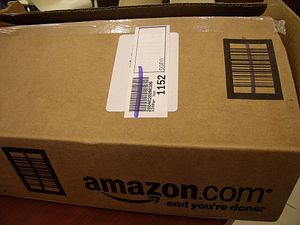Trans-Pacific View author Mercy Kuo regularly engages subject-matter experts, policy practitioners, and strategic thinkers across the globe for their diverse insights into U.S. Asia policy. This conversation with John Manners-Bell – founder and chief executive officer of Transport Intelligence and chair of the Logistics and Supply Chain Global Agenda Council of the World Economic Forum – is the 91st in “The Trans-Pacific View Insight Series.”
What is Amazon Logistics+?
Amazon Logistics+ is the logistics operation of Amazon in China, catering to the needs of small- and medium-sized companies shipping overseas. It was added to Amazon’s “Fulfilled by Amazon” service in 2015, offering transportation and cross-border logistics including freight forwarding.
Describe the disruptive role of Amazon Logistics+ in China’s market.
Amazon will seek to consolidate its shipments out of China, enabling it to exploit economies of scale and thus drive down the prices it pays for freight. This may have implications for the ability of shipping lines to set prices for their services. If the service is successful, it could open it up to other shippers and this could impact the incumbent freight forwarders – although it is too early to say whether it will have a material effect on the market.
What is the impact of Amazon Logistics+ on global logistics and supply chain?
At present the global logistics industry shares an uneasy relationship with Amazon. Many major express parcels networks, contract logistics, air carriers, freight forwarders, and technology providers act simultaneously as both suppliers and competitors. While some are wary of engaging, afraid of losing intellectual property or being used as a stepping stone to Amazon’s ultimate goal of building its own operations, others take a more pragmatic view driven by the need for short term volumes.
Do Alibaba, Cainiao, and other competitors have a counter-strategy to Amazon’s?
Amazon is a very small player in the Chinese domestic market and this will not be changed by its development of Amazon Logistics+. However, Alibaba is developing its own global network to tap into the fast-growing, cross-border e-commerce market. It has established partnerships with logistics companies all over the world. For example, it has invested in SingPost’s logistics subsidiary, strengthening its end-to-end e-commerce logistics network and building scale for future profitability.
How might Amazon Logistics+ further transform the global e-commerce landscape?
Amazon has decided to side-step the existing logistics giants, at least in important parts of its business. It is big enough to ensure that volumes are sufficient to support its own networks. With the infrastructure in place they will be able to open these networks up to other shippers, at a rate that will be extremely competitive. Although certainly not the end of the road for the world’s major transport and logistics players, it will mean that the market is set to become even more competitive at a time when many companies are already struggling to make reasonable returns. Most people in the industry now recognize that Amazon is no longer just an online retailer but instead a giant logistics company.
































